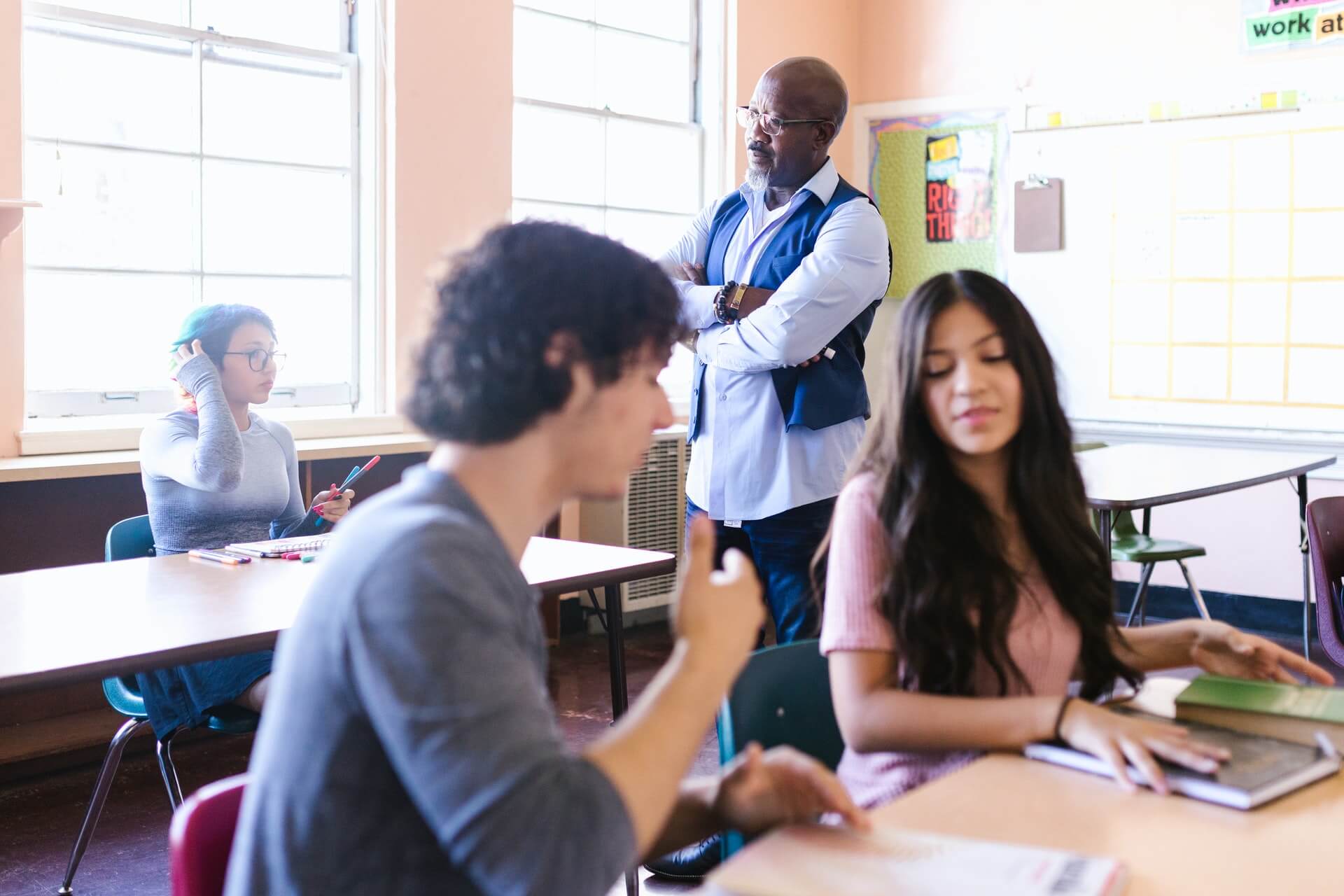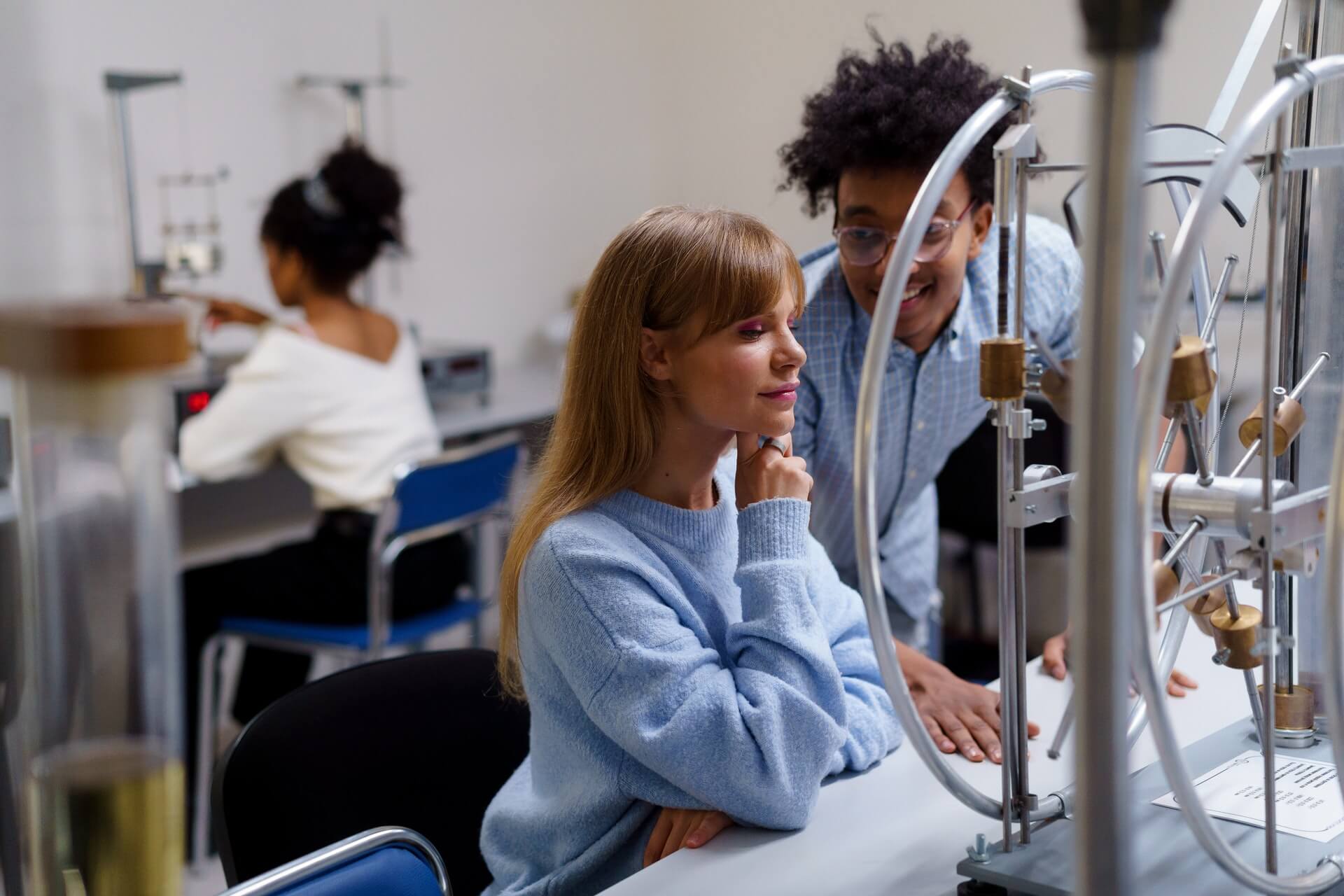Redefining Student Success with the XQ Competencies
High schools shape the daily lives—and create the foundation for the future success—of more than 15…

High schools shape the daily lives—and create the foundation for the future success—of more than 15 million U.S. students, their families, and communities every day. But do our high schools truly prepare all students for good jobs, successful careers, and real life? Does success in high school translate to post-graduation preparedness?
Not yet. Too many high schools lack opportunities for relevant, rigorous learning—learning that centers students’ passions and future goals, and emphasizes life skills as well as academic performance. As a result, students miss out on the preparation they need for life, college, and career. To prepare students for future success, we need to change how we think about student performance in high school and ask: what kinds of skills and knowledge are most important for students to learn, and how can we measure success at mastering those skills and knowledge?
We created the XQ Competencies as a tool to do just that. Read on to explore how this approach nurtures student performance on outcomes that matter, and how educators can use the XQ Competencies to promote deep learning and successful students.
The XQ Learner Outcomes
Traditionally, student performance is measured by standardized benchmarks like test scores and time spent in seats. But these measures don’t reflect the full depth of student learning. Instead, student performance should be measured by how well students master the knowledge and skills they’ll need to succeed in life after high school.
We’ve defined these key objectives through the XQ Learner Outcomes:
- Original Thinkers for an Uncertain World
- Masters of All Fundamental Literacies
- Holders of Foundational Knowledge
- Generous Collaborators for Tough Problems
- Learners for Life
These aspirational yet research-based outcomes describe what all students must know and be able to do to thrive in college—or any other postsecondary education options—and to succeed in careers, and all the opportunities life has to offer.
We organized the XQ Competencies around these Learner Outcomes. By measuring student performance with Learner Outcomes, instead of test scores or Carnegie units, educators can support students in future-ready learning across different skill sets: academic knowledge, cognitive skills, social-emotional capacities, and real-world skills like networking and financial literacy.

What Are the XQ Competencies?
Drawing on research, existing academic and social-emotional frameworks, and practical expertise, we’ve identified a set of competencies and sub-competencies that align with the five XQ Learner Outcomes. Within each sub-competency, a series of skill-based, cognitive, and social-emotional progressions offer a new way to assess, document, and certify students’ learning, measured against concrete milestones for acquiring the knowledge and skills needed for future success.
XQ’s competency-based approach purposefully integrates academic knowledge, cognitive skills, and social-emotional competencies in a way that we believe is powerful and unique, because learning needs to incorporate and cultivate all three. We started with competencies and areas of learning that were missing from existing standards regimes and curricula—like civics and arts—and built the framework to live alongside, and integrate with, existing core content standards in subjects such as math and science.
We also designed the XQ Competencies to be accessible to all members of the learning community—teachers, parents and families, and students themselves. Educators can use the competencies to build learning experiences that are explicitly student-centered, involving students in the process of measuring and driving their own success towards their learning goals.
For example, one of the competencies of Foundational Knowledge involves understanding how political and social power impact us all as individuals. At the XQ school Crosstown High in Memphis, Tennessee, teacher Kat McRitchie’s AP US History students use the Iroquois Constitution and contemporary quotes from the state’s governor to explore the role of power in history, and create arguments supporting their claims. Her students also design their own class contract, based on core values, by using the competencies within Original Thinkers for an Uncertain World, Generous Collaborators, and Learners for Life.
Here are four steps educators can take to expand and deepen student learning.
- Embed the competencies deeply into every minute of school. The outcomes aren’t just academic; they include cognitive and social-emotional development. They give schools a way to integrate existing standards with essential competencies that can be measured.
- Rethink the learning experiences for students. Think about where and how students can grow their academic learning AND social-emotional capacities, AND cognitive skills—so they’re truly ready for success in life. Learning experiences like this can cut across every subject.
- Design beyond the usual constraints. Rigorous learning can happen anywhere, anytime. Experiences that cross disciplines, that take place outside school, that young people choose for themselves—all can be powerful opportunities to learn. There’s no reason why that learning can’t be recognized and credentialed.
- Build an enriched record of students’ growth and success. Evidence of learning from across these dimensions can come together into a transcript that reflects a student’s whole body of work, development, and achievement.
Ultimately, we believe the XQ Competencies can be a cornerstone for educators and communities as they develop learning experiences and high school models that deliver the XQ Learner Outcomes for all learners. An approach like this has the potential to change everything: how we teach, our expectations for students, how assessment works, and, most important, how students experience school.
Learn More
The XQ Competencies imply not just a different way of teaching and learning, but a whole new way of delivering, capturing, and certifying that learning. We are also working on a first-of-its-kind Student Performance Framework, which will encompass the entire learner journey—from the design of new, transformational learning experiences, to new ways to assess and capture student learning, to a dynamic student transcript to certify students’ performance. Together, these shifts add up to a whole new way to think about students and what they need from their high schools.
There’s plenty more work to be done, but we are excited to get started!









